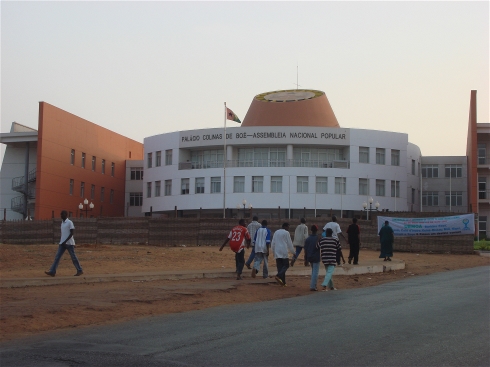
While the situation of justice in Guinea-Bissau is ‘sad’ and ‘terrible,’ the United Nations Special Rapporteur on the independence of judges and lawyer today noted as positive the Supreme Court ruling this year that declared unconstitutional the appointment of the nation’s prime minister.
“The authorities must prioritize urgent measures to guarantee better access to justice and to rebuild the population’s trust in the institutions,” said Mónica Pinto at the end of her firstofficial visit to the country.
“Serious dysfunctions in the justice system and material deficiencies “create a fertile ground for independence, corruption and impunity to grow.”
Ms. Pinto exhorted the Government of Guinea-Bissau to support and dignify the work of judges and prosecutors, as well as to recognize the central role that lawyers play in the judicial system, the exercise of democracy and the strengthening of the rule of law.
Ms. Pinto will formulate recommendations in the report she will present in June 2016 before the Human Rights Council.
Summing up her observations to the West African nation, the rapporteur said “several interlocutors noted that the situation of justice is sad, terrible – in line with the country’s situation.”
Guinea-Bissau is among the 20 poorest countries of the world, and the United Nation’s involvement in peace-building in Guinea-Bissau dates back to 1999. The country plunged into political turbulence earlier this year, barely a year after the re-establishment of constitutional order.
“Nonetheless,” the Special Rapporteur said “the population considered as positive the recent ruling of the Supreme Court of Justice that declared unconstitutional the appointment of a new Prime Minister in August of this year.”
“Many in Guinea-Bissau, as well as in the international community, received this decision as an assertion of the independence of the Court,” she said. “This ruling revived the credibility of the justice system.”
But Ms. Pinto said she observed multiple and grave deficiencies in the justice system.
“Justice does not reach the people; it is concentrated in the capital and a few cities in the countryside,” she said. “In the rest of the country, access to justice – a requisite necessary to exercise one’s rights – is illusory: there are no judges, no prosecutors, and no lawyers.”
The Special Rapporteur stated that the absence of courts in most parts of the country and the already mentioned high fees lead people to reach out to “traditional justice” mechanisms, which mediate between parties to solve conflicts, but without necessarily considering positive national and international law.
“For the population to regain trust in the independence of justice, it is crucial that the actors of this system be able to act efficiently,” she said.
Ms. Pinto took up her functions as UN Special Rapporteur on the independence of judges and lawyers on 1 August 2015.
In that capacity, she works on a voluntary basis, is not UN staff and does not receive a salary for their work. He work is independent from any government or organization and serve in their individual capacity.


